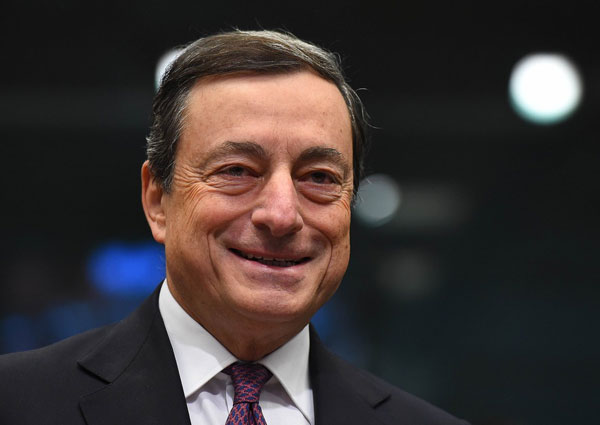
Addicted to liquidity and disconnected from the real economy, global markets are likely to dance in 2015 to the different monetary policy tunes played by the US Fed, the ECB and China, as plunging oil prices spice up the mix.
In 2015, “like the last seven years, it is the central bank interventions that will have an influence over the markets,” said Romain Boscher, a stock portfolio manager at Amundi.
For the past several years central banks have tried to stimulate stalled economies by a mix of injecting massive amounts of liquidity into markets, lowering interest rates to ultra low levels and snapping up assets.
Well irrigated with this liquidity, stock markets have done well and government borrowing rates have fallen, but in the real economy the situation isn’t quite as rosy.
Thus in 2015 monetary policy will no longer be uniform, said Mathieu L’Hoir, an equity strategist at AXA Investment Managers.
“The divergence between the central banks… will have the consequence of introducing considerably more volatility in the markets,” he added.
ASSET PURCHASE PROGRAMMES
The US and Britain, two countries whose central banks launched early and aggressive asset purchase programmes, are enjoying a recovery and interest rates are expected to begin rising in 2015.
But Japan has just launched more asset purchases as its economy has stumbled back into recession, while China is lowering rates and injecting liquidity to ensure no hard landing as its growth slows.
And pressure is on the European Central Bank to undertake a similar programme to avoid the risks of deflation and recession.
“The ECB has its hands and feet tied and it has to meet expectations,” said L’Hoir. “Action is needed quickly given the evolution in inflation.”
But a rout in oil prices is complicating the situation. Crude prices have almost halved since June to levels not seen since 2009, when the world was still locked in a financial crisis.
“Oil prices, it is like a massive global budgetary boost, especially for countries which subsidise energy,” said L’Hoir, pointing to India and Southeast Asia.
But for Europe, which is battling the spectre of deflation, cheaper crude is making it more difficult for the ECB to achieve its mission of keep consumer prices stable.
THROTTLING DEMAND
Falling prices may sound good for the consumer but are not welcome from a central bank’s point of view as they can trigger a vicious circle where businesses and households delay purchases, throttling demand and causing companies to lay off workers.
Nevertheless, if it manages to avoid skidding into deflation on cheap oil prices, Europe can expect cheaper crude to eventually help give consumers more spending power.
“The rout in oil prices could be a massive game changer for the world economy,” said Berenberg analyst Holger Schmieding.
“For users of energy, it is equivalent to a huge tax cut. In fact, it’s even better than that: the cut will not show up in bigger fiscal deficits and hence future liabilities of the energy users. Instead, Russia and other energy producers will have to foot the bill.


